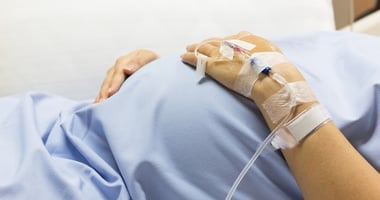Women with depression who are taking first-generation antidepressants while pregnant may be putting...
Lithium Exposure During Pregnancy May Contribute to Birth Defects, Miscarriages, Study Finds
 |
Results showed that the lithium-exposed subjects were nearly five times more likely to have a miscarriage or elective termination of pregnancy than their non-lithium-exposed counterparts. In addition, cardiovascular anomalies—assessed by fetal echocardiography—were seven times more likely to occur during the first-trimester of pregnancy in women exposed to lithium than those who were not exposed. The rate for preterm delivery was approximately 14% in the lithium group, compared with 6% in the group without lithium exposure.
Nada Stotland, M.D., a professor of psychiatry at Rush University and expert in OB-GYN psychiatry, told Psychiatric News that there are several factors to consider when treating bipolar disorder in women who are pregnant. “If the patient has had a history of full-blown manic or depressive episodes, physicians should really think of the mental health consequences that may arise if that patient is taken off medication. In the case of patients with milder episodes and a strong support system, lessening dosages could be considered in the first trimester.” Stotland, a former president of APA, emphasized that choosing the best treatment for expectant mothers with bipolar disorder is not a “one-size-fits-all” situation and that clinicians should “balance the risks of lithium exposure during pregnancy against the risk and consequences of not treating bipolar disorder.”
To read more about lithium use during pregnancy, see the Psychiatric News article, "New Data Provide Guidance on Lithium Use in Pregnancy." Also see Clinical Manual of Women's Mental Health from American Psychiatric Publishing.
(Image: auremar/shutterstock.com)





